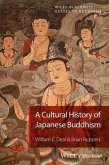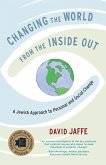The image of Jews in East Asia is a strange mixture of opposites, a paradoxical blend of admiration and mockery, identification and denial. This book explores what 'Jew' means to many East Asians, and whether it is anything that Jewish people themselves would recognise.
There is clearly a positive fascination: various bestsellers entitled Talmud are found in vending machines and public schools, while private 'Jewish education' institutions have opened across South Korea, claiming to improve children's IQ. People can stay at the Talmud Business Hotel in Taiwan, or attend Chinese centres for Jewish Studies with academics who have never met a Jew. There is a legend that Japanese people are a Lost Tribe of Israel, and 'Anne's day', named after Anne Frank, is a euphemism for menstruation. Yet the region also shows some of the world's highest rates of antisemitism, manifesting in disturbing ways: Taiwan's concentration campthemed restaurant, or South Korea's 'Adolf Hitler Techno Bar & Cocktail Show'.
By integrating scholarship on antisemitism, East Asian Studies and cognitive science, Schilling uncovers antisemitism's global, sometimes dualistic nature; not Western, and always persistent. He offers ground-breaking insight, redefining how we understand East Asia, antisemitism, and Judaism as a globalised religion.
There is clearly a positive fascination: various bestsellers entitled Talmud are found in vending machines and public schools, while private 'Jewish education' institutions have opened across South Korea, claiming to improve children's IQ. People can stay at the Talmud Business Hotel in Taiwan, or attend Chinese centres for Jewish Studies with academics who have never met a Jew. There is a legend that Japanese people are a Lost Tribe of Israel, and 'Anne's day', named after Anne Frank, is a euphemism for menstruation. Yet the region also shows some of the world's highest rates of antisemitism, manifesting in disturbing ways: Taiwan's concentration campthemed restaurant, or South Korea's 'Adolf Hitler Techno Bar & Cocktail Show'.
By integrating scholarship on antisemitism, East Asian Studies and cognitive science, Schilling uncovers antisemitism's global, sometimes dualistic nature; not Western, and always persistent. He offers ground-breaking insight, redefining how we understand East Asia, antisemitism, and Judaism as a globalised religion.
Dieser Download kann aus rechtlichen Gründen nur mit Rechnungsadresse in A, D ausgeliefert werden.









